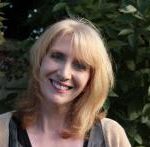A parent’s perspective
I attended a really fascinating talk recently in St Saviour’s Priory in Dublin, part of the Symposium lecture series which takes place on the first Thursday of every month. A large, enthusiastic crowd was attracted by the title ‘Edith Stein’s Understanding of Human Flourishing’. Otherwise known as St Teresa Benedicta of the Cross, Edith Stein was a German Jewish philosopher who converted to Catholicism after reading The Life of St Teresa of Avila becoming a Discalced Carmelite nun. She led a life of extraordinary holiness in the midst of much suffering and ended her life in an Auschwitz gas chamber on August 9, 1942.
Those who came to the talk couldn’t have left without wanting to learn more about this outstanding, intelligent, saintly woman. The speaker, Dr Robert McNamara, teaches Philosophy and Theology at the Franciscan University of Steubenville and is well known through his work with the Aquinas Summer School.
He spoke specifically about Edith Stein’s depiction of the human soul as “an interior castle”, a description used by St Teresa of Avila. She recognised the innermost being of the soul as “the abode of God”. Like the physical body which needs food and nourishment to survive and thrive, our soul needs spiritual nourishment which it incorporates into its being to become the best version of what it should be.
Pope John Paul II said at Edith Stein’s canonisation that her deep spiritual awareness made her “a model to inspire us and a protectress to call upon”. After Prof. McNamara’s insights into the life of St Teresa Benedicta of the Cross, I found myself wondering how his description of the inner life of the soul and the inner castle with its many rooms could be related in practical terms to a parent’s role in trying to help their children to “feed” this inner life.
We’re all increasingly tuned in to what we eat and are aware of the needs of the body and what we should or shouldn’t be consuming, be it sugar or salt content, allergens, calorie counts or artificial additives.
❛❛The invitation to love is always there, but we have to respond.”
For many families, sport and keeping fit is a huge part of every week, and programmes like ‘Operation Transformation’ are becoming more and more popular. Once we eat well, get enough exercise and follow some common sense guidelines, our physical bodies usually tick along fine. When it comes to the spiritual, a bit more is required.
According to Robert McNamara, our active cooperation is needed to feed the life of the soul. The invitation to love is always there, but we have to respond. He explained that faith can be lived on a very superficial level without us ever getting to that deeper level where our soul reveals its true essence with all its unique powers and qualities.
How do we work towards trying to promote a deeper faith in our families and homes? High on our list of priorities has to be prayer. As my children get older, noise levels in the house have got higher. As parents, we’re reluctant to quell our children’s natural exuberance or be killjoys when it comes to varying musical tastes, constant chatter or, in our family’s case, the tones of trumpet or tuba practice. Silence is golden but it’s in short supply.
Edith Stein was a great believer in the need for stillness and silent prayer. She wrote that “we need those hours in which we listen silently and let the divine word work within us”. We have to carve out those quiet times and, unpopular as it might be at first, we must turn off and tune out the noise. Not many of us are too far from a church, so even a 15 minute visit to just be in God’s presence can become a family custom.
Bring children’s prayer books, light candles and make it an occasion. The best way to build faith and to promote a deeper love of God in our families is to avail of the sacraments. The Eucharist should be the centre of our lives so we can try to go to Mass more often. Edith Stein was quite direct in wondering how Catholics could have time for all sorts of diversions “which waste time and energy like crumbs” but no time for daily Mass where she said one “would be recollected, not distracted and where energy was not wasted but gained”. She urged people to avail of Confession often too, leaving our sins in the hands of God and trusting in his forgiveness.
What really struck me about the talk on Edith Stein was the focus on how what we absorb from the outside world becomes a part of who and what we are and influences our relationship with God. This Lent is a good time to reject what is crass and superficial and go for all that is lovely, good and true.
Expose children to the most beautiful music, embrace all that is authentic, introduce the great works of art, source things that enrich the life of our families, feed their souls and lead them to develop that interior castle where, they’ll not only find their true selves, but where they can really rest in God’s grace. In the words of Edith Stein: “In order to be an image of God, the spirit must turn to what is eternal, hold it in spirit, keep it in memory and, by loving it, embrace it in the will.”


 Maria Byrne
Maria Byrne
